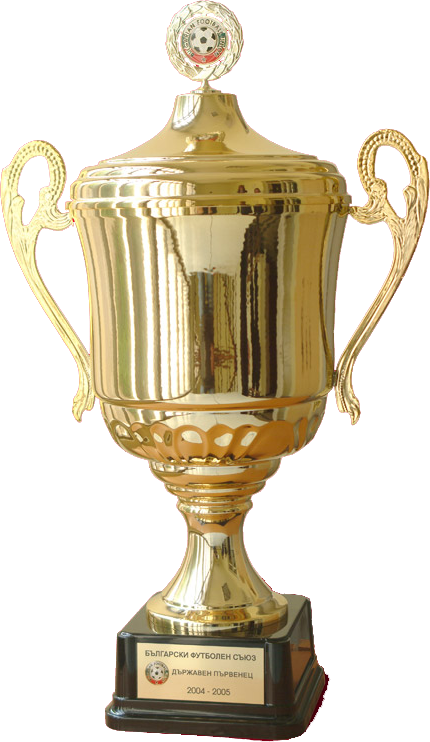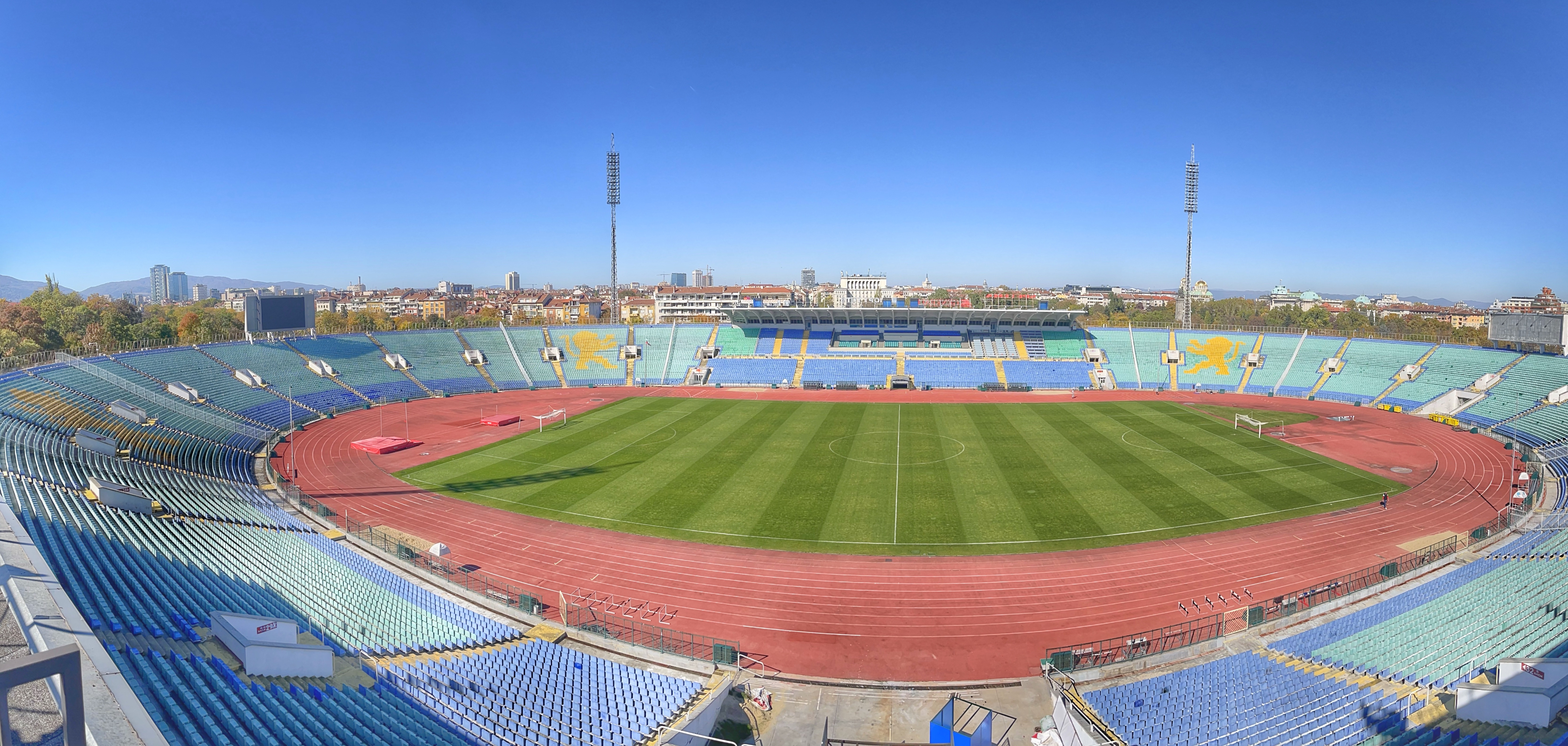|
Georgi Donkov
Georgi Donkov ( bg, Георги Донков; born 2 June 1970) is a Bulgarian former professional footballer who played as a forward. Club career In his career Donkov played for Levski Sofia, Botev Plovdiv and CSKA Sofia. He played also in Germany for VfL Bochum, 1. FC Köln, SC Paderborn 07, SV Waldhof Mannheim and FSV Oggersheim, in Switzerland with Neuchâtel Xamax, and in Cyprus for Enosis Paralimni. International career Donkov was a member of the Bulgaria national team with which he participated at Euro 1996. Coaching career Donkov started his coaching career in the summer 2010, where he was appointed assistant coach under manager Mario Basler at Wacker Burghausen. On 14 May 2011, after manager Basler was fired, Donkov was named caretaker manager until the end of the season. Donkov continued as assistant coach, after a manager was hired during the summer break. In May 2012, after Reinhard Stumpf was fired, Donkov was once again named caretaker manager until the end o ... [...More Info...] [...Related Items...] OR: [Wikipedia] [Google] [Baidu] |
Sofia
Sofia ( ; bg, София, Sofiya, ) is the capital and largest city of Bulgaria. It is situated in the Sofia Valley at the foot of the Vitosha mountain in the western parts of the country. The city is built west of the Iskar river, and has many mineral springs, such as the Sofia Central Mineral Baths. It has a humid continental climate. Being in the centre of the Balkans, it is midway between the Black Sea and the Adriatic Sea, and closest to the Aegean Sea. Known as Serdica in Antiquity and Sredets in the Middle Ages, Sofia has been an area of human habitation since at least 7000 BC. The recorded history of the city begins with the attestation of the conquest of Serdica by the Roman Republic in 29 BC from the Celtic tribe Serdi. During the decline of the Roman Empire, the city was raided by Huns, Visigoths, Avars and Slavs. In 809, Serdica was incorporated into the Bulgarian Empire by Khan Krum and became known as Sredets. In 1018, the Byzantines ended Bulgarian rule ... [...More Info...] [...Related Items...] OR: [Wikipedia] [Google] [Baidu] |
Association Football
Association football, more commonly known as football or soccer, is a team sport played between two teams of 11 players who primarily use their feet to propel the ball around a rectangular field called a pitch. The objective of the game is to score more goals than the opposition by moving the ball beyond the goal line into a rectangular framed goal defended by the opposing side. Traditionally, the game has been played over two 45 minute halves, for a total match time of 90 minutes. With an estimated 250 million players active in over 200 countries, it is considered the world's most popular sport. The game of association football is played in accordance with the Laws of the Game, a set of rules that has been in effect since 1863 with the International Football Association Board (IFAB) maintaining them since 1886. The game is played with a football that is in circumference. The two teams compete to get the ball into the other team's goal (between the posts and under t ... [...More Info...] [...Related Items...] OR: [Wikipedia] [Google] [Baidu] |
Bulgarian Men's Footballers
Bulgarian may refer to: * Something of, from, or related to the country of Bulgaria * Bulgarians, a South Slavic ethnic group * Bulgarian language, a Slavic language * Bulgarian alphabet * A citizen of Bulgaria, see Demographics of Bulgaria * Bulgarian culture * Bulgarian cuisine, a representative of the cuisine of Southeastern Europe See also * * List of Bulgarians, include * Bulgarian name, names of Bulgarians * Bulgarian umbrella, an umbrella with a hidden pneumatic mechanism * Bulgar (other) * Bulgarian-Serbian War (other) The term Bulgarian-Serbian War or Serbian-Bulgarian War may refer to: * Bulgarian-Serbian War (839-842) * Bulgarian-Serbian War (853) * Bulgarian-Serbian wars (917-924) * Bulgarian-Serbian War (1330) * Bulgarian-Serbian War (1885) * Bulgarian-Serbi ... {{disambiguation Language and nationality disambiguation pages ... [...More Info...] [...Related Items...] OR: [Wikipedia] [Google] [Baidu] |
Footballers From Sofia
A football player or footballer is a sportsperson who plays one of the different types of football. The main types of football are association football, American football, Canadian football, Australian rules football, Gaelic football, rugby league and rugby union. It has been estimated that there are 250 million association football players in the world, and many play the other forms of football. Career Jean-Pierre Papin has described football as a "universal language". Footballers across the world and at almost any level may regularly attract large crowds of spectators, and players are the focal points of widespread social phenomena such as association football culture. Footballers generally begin as amateurs and the best players progress to become professional players. Normally they start at a youth team (any local team) and from there, based on skill and talent, scouts offer contracts. Once signed, some learn to play better football and a few advance to the senior or prof ... [...More Info...] [...Related Items...] OR: [Wikipedia] [Google] [Baidu] |
1970 Births
Events January * January 1 – Unix time epoch reached at 00:00:00 UTC. * January 5 – The 7.1 Tonghai earthquake shakes Tonghai County, Yunnan province, China, with a maximum Mercalli intensity of X (''Extreme''). Between 10,000 and 14,621 were killed and 26,783 were injured. * January 14 – Biafra capitulates, ending the Nigerian Civil War. * January 15 – After a 32-month fight for independence from Nigeria, Biafran forces under Philip Effiong formally surrender to General Yakubu Gowon. February * February 1 – The Benavídez rail disaster near Buenos Aires, Argentina, kills 236. * February 10 – An avalanche at Val-d'Isère, France, kills 41 tourists. * February 11 – '' Ohsumi'', Japan's first satellite, is launched on a Lambda-4 rocket. * February 22 – Guyana becomes a Republic within the Commonwealth of Nations. March * March 1 – Rhodesia severs its last tie with the United Kingdom, declaring itself a republic. * March 4 — All 57 m ... [...More Info...] [...Related Items...] OR: [Wikipedia] [Google] [Baidu] |
Living People
Related categories * :Year of birth missing (living people) / :Year of birth unknown * :Date of birth missing (living people) / :Date of birth unknown * :Place of birth missing (living people) / :Place of birth unknown * :Year of death missing / :Year of death unknown * :Date of death missing / :Date of death unknown * :Place of death missing / :Place of death unknown * :Missing middle or first names See also * :Dead people * :Template:L, which generates this category or death years, and birth year and sort keys. : {{DEFAULTSORT:Living people 21st-century people People by status ... [...More Info...] [...Related Items...] OR: [Wikipedia] [Google] [Baidu] |
Cup Of The Soviet Army (1983–1990)
The Soviet Army Cup ( bg, Купа на Съветската армия, Kupa na Savetskata armiya) was an annual knockout football cup tournament held in Bulgaria between 1946 and 1990. Until 1982, it was the country's main cup competition, its winners would qualify for the UEFA Cup Winners' Cup. From 1982, to its ceasure in 1990 the Soviet Army Cup served as a secondary cup tournament. Winners As a primary cup competition (1946-1982) As a secondary cup competition (1983-1990) Notes: *(II) - Clubs representing Bulgarian B Professional Football Group at the moment of the final. *(III) - Clubs representing Bulgarian V AFG The Bulgarian Third Amateur Football League ( bg, Трета аматьорска футболна лига, Treta Amat'orska Futbolna Liga), commonly referred to as Third League ( bg, Трета лига) or Treta liga, is the third level of the ... at the moment of the final. Performances Performance by club Performance by city External linksCup of ... [...More Info...] [...Related Items...] OR: [Wikipedia] [Google] [Baidu] |
Bulgarian Cup
The Bulgarian Cup ( bg, Купа на България, Kupa na Bulgaria) is a Bulgarian annual football competition. It is the country's main cup competition and all officially registered Bulgarian football teams take part in it. The tournament's format is ''single-elimination'', with all matches being one-legged, except the semi-finals. The competition's winner gets the right to take part in the UEFA Europa Conference League. If the winner has already secured a place through the Bulgarian A Professional Football Group, the team that has come ''fourth'' in the championship substitutes it. The competition has been dominated by Sofia-based teams. The Sofia teams have won together a total number of 65 titles. The three most successful teams are Levski Sofia (26 cups), CSKA Sofia (21 cups) and Slavia Sofia (8 cups). The current cup holders are Levski Sofia, who beat CSKA Sofia 1–0 in the 2022 final. Format The Bulgarian Cup tournament is divided in two phases - the ''Qualific ... [...More Info...] [...Related Items...] OR: [Wikipedia] [Google] [Baidu] |
A PFG
The First Professional Football League ( bg, Първа професионална футболна лига, Parva Profesionalna Futbolna Liga), also known as the Bulgarian First League or Parva Liga, currently known as the efbet League for sponsorship reasons, is a professional association football league, located at the top of the Bulgarian football league system. Contested by 16 teams, it operates on a system of promotion and relegation with the Second Professional Football League. The Bulgarian football championship was inaugurated in 1924 as the '' Bulgarian State Football Championship'' and has been played in a league format since 1948, when the A Group was established. The champions of the First League have the right to participate in the qualifying rounds of the UEFA Champions League based on the league's European coefficient. Additionally, two UEFA Europa League spots are allocated to the second team in the final standings and the winner of the European playoffs. A fu ... [...More Info...] [...Related Items...] OR: [Wikipedia] [Google] [Baidu] |
Friendly (association Football)
An exhibition game (also known as a friendly, a scrimmage, a demonstration, a preseason game, a warmup match, or a preparation match, depending at least in part on the sport) is a sporting event whose prize money and impact on the player's or the team's rankings is either zero or otherwise greatly reduced. In team sports, matches of this type are often used to help coaches and managers select and condition players for the competitive matches of a league season or tournament. If the players usually play in different teams in other leagues, exhibition games offer an opportunity for the players to learn to work with each other. The games can be held between separate teams or between parts of the same team. An exhibition game may also be used to settle a challenge, to provide professional entertainment, to promote the sport, to commemorate an anniversary or a famous player, or to raise money for charities. Several sports leagues hold all-star games to showcase their best players a ... [...More Info...] [...Related Items...] OR: [Wikipedia] [Google] [Baidu] |
Vasil Levski National Stadium
Vasil Levski National Stadium ( bg, Национален стадион „Васил Левски“), named after Bulgarian national hero and revolutionary Vasil Levski (1837–1873), is the country's second largest stadium. The stadium has 43,230 seats and is located in the centre of Sofia, on the territory of the city's oldest and most famous park - the Borisova gradina. The Bulgaria national football team's home matches and the Bulgarian Cup finals are held at the venue, as well as athletics competitions. It was used as the home venue for Levski Sofia's Champions League games, and is often used for important derbies between the big clubs from Sofia, instead of their own home stadiums. History Vasil Levski National Stadium was officially opened in 1953, extended in 1966 and renovated in 2002. Prior to their demolition by the Communist authorities during the 1940s and 50s, two other stadiums stood on the ground where the current national stadium lies. One of those was Levski ... [...More Info...] [...Related Items...] OR: [Wikipedia] [Google] [Baidu] |






